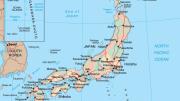After the catastrophic March 11 earthquake and subsequent tsunami struck Japan, the Harvard Alumni Association assembled a Web page where alumni living in Japan could check in, send word that they were all right, and share their accounts of the disaster and its aftermath. Several survivors shared firsthand accounts; on March 19 (the most recent entry as of this writing), Yukari Fujita, M.T.S. ’96, posted an evocative account of the effects in the Japanese capital of Tokyo Electric Power Company's request that people throughout the country conserve energy because several nuclear reactors had been crippled.
Normal life is resuming, she writes, but people go home earlier on weekends, "as the city is too dark to enjoy nightlife." "The famous big TV screens in front of Shibuya station are all out," she notes, and it has become rarer to see senior citizens or mothers with children in public because most elevators and escalators are not working.
Separately, in a New York Times op-ed, assistant professor of history Ian Jared Miller remembered teaching school in the 1990s in the port town of Miyako (on the Sanriku Coast of northeastern Japan, very close to the quake's epicenter). Walking with some of his students to their home village, Miller had come upon a marker showing the high-water line from an earlier tsunami; he later learned that the Sanriku Coast had weathered tsunamis in 1896, 1933, and 1960. The piece is a haunting exploration of why the village is at such great risk ("The same steep valley walls and deep inlets that make Sanriku so beautiful also make its villages and towns especially hazardous. The valleys channel a tsunami's energy, pushing swells that are only a few feet high in the open ocean up to stunning heights.") and how it has fared with each tsunami (even state-of-the-art engineering was not enough to protect it this time). See Miller's faculty profile here; it notes, "He is also investigating the global history of tsunami and co-editing the first collection of essays on Japan's environmental history in English with Professors Brett L. Walker and Julia Adeney Thomas."
Interested in reading more about Japan? This article from the Harvard Magazine archives, a Forum by Reischauer professor of Japanese politics Susan J. Pharr, examines contemporary life in Japan prior to the earthquake. Pharr examined the paradox of the high quality of life Japan's citizens enjoyed—despite the country's weak economy—by looking at social, economic, and political factors.
Pharr will appear at the Harvard Kennedy School's JFK Jr. Forum on March 24 as part of a panel titled "Japan: The Earthquake and the Worldwide Aftershocks." Other panelists include Takeshi Hikihara, consul general of Japan, and Baker professor of public policy Herman "Dutch" Leonard. (Read Leonard's "preliminary observations" about the earthquake and its aftermath, posted March 12.)
The discussion begins at 6 p.m. The Forum streams events live on its website, and typically also posts archived video of events.









